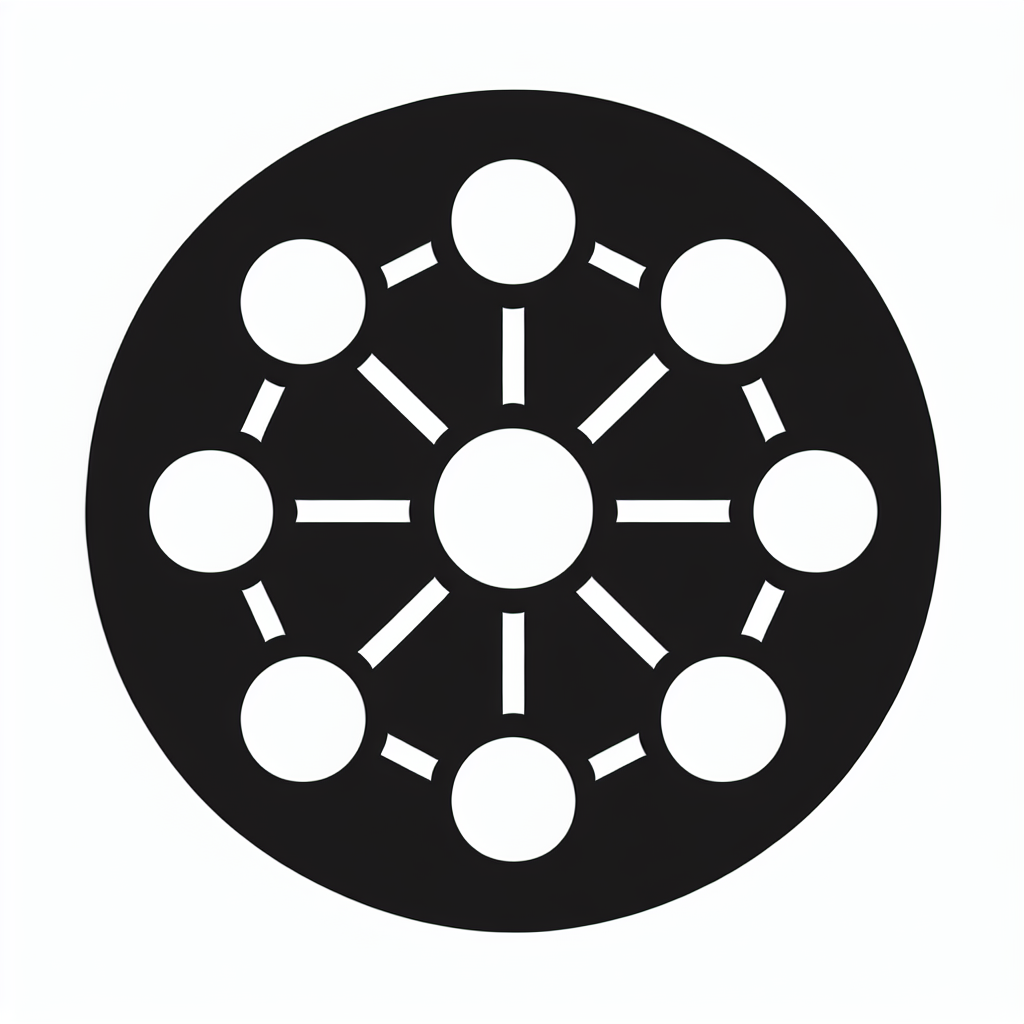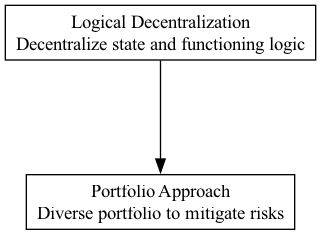Home / Contents / Donations / News / Contact
LDG - Logical Decentralization

Supports:
Context:
In DAOs, decentralization is a fundamental principle not only for its structure but also for its processes. Ensuring that no single point of failure or control can overpower the system is crucial for maintaining integrity, reducing risks, and enhancing trust among participants.
Problem:
While physical decentralization concerns the distribution of control and infrastructure, logical decentralization addresses how decisions, processes, and functionalities are spread across various components or modules in a DAO. The centralization of logic or decision-making processes, even in a physically decentralized architecture, can lead to inefficiencies, bottlenecks, or vulnerabilities.
Forces:
- Trust and security: Centralization can lead to vulnerabilities where errors or malicious acts in a single module can compromise the entire system.
- Efficiency and scalability: Centralized processes can become bottlenecks as the organization scales.
- Flexibility and adaptability: A decentralized logic allows the system to be more adaptable to changes and diverse needs.
Solution:
Implement a design where the decision-making logic and operational processes of a DAO are fragmented and distributed across multiple independent yet interconnected modules. Each module should be designed to operate semi-autonomously with defined interfaces for interacting with other modules. This creates a robust architecture where the failure or compromise of a single module does not critically impact the overall system. Modules can be updated, modified, or replaced without affecting the core functionalities of the DAO. This approach not only enhances security by reducing risks associated with central points of failure but also improves governance as it inherently supports multiple viewpoints and democratizes control.
Real-world examples:
- Multi-Signature Wallets in DAOs like MakerDAO, where actions require consensus from multiple independent parties, effectively distributing decision-making authority.
- SubDAOs or Committees in larger DAOs manage specific aspects like treasury management or dispute resolution, each operating under its own set of rules but contributing to the main DAO’s objectives.
Therefore:
Strive to design systems where logical processes are as decentralized as the community or infrastructure, ensuring that the DAO remains robust, adaptable, and democratic in its operations.
